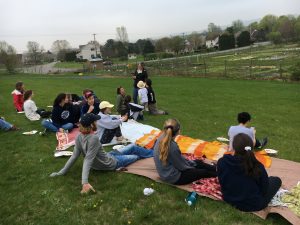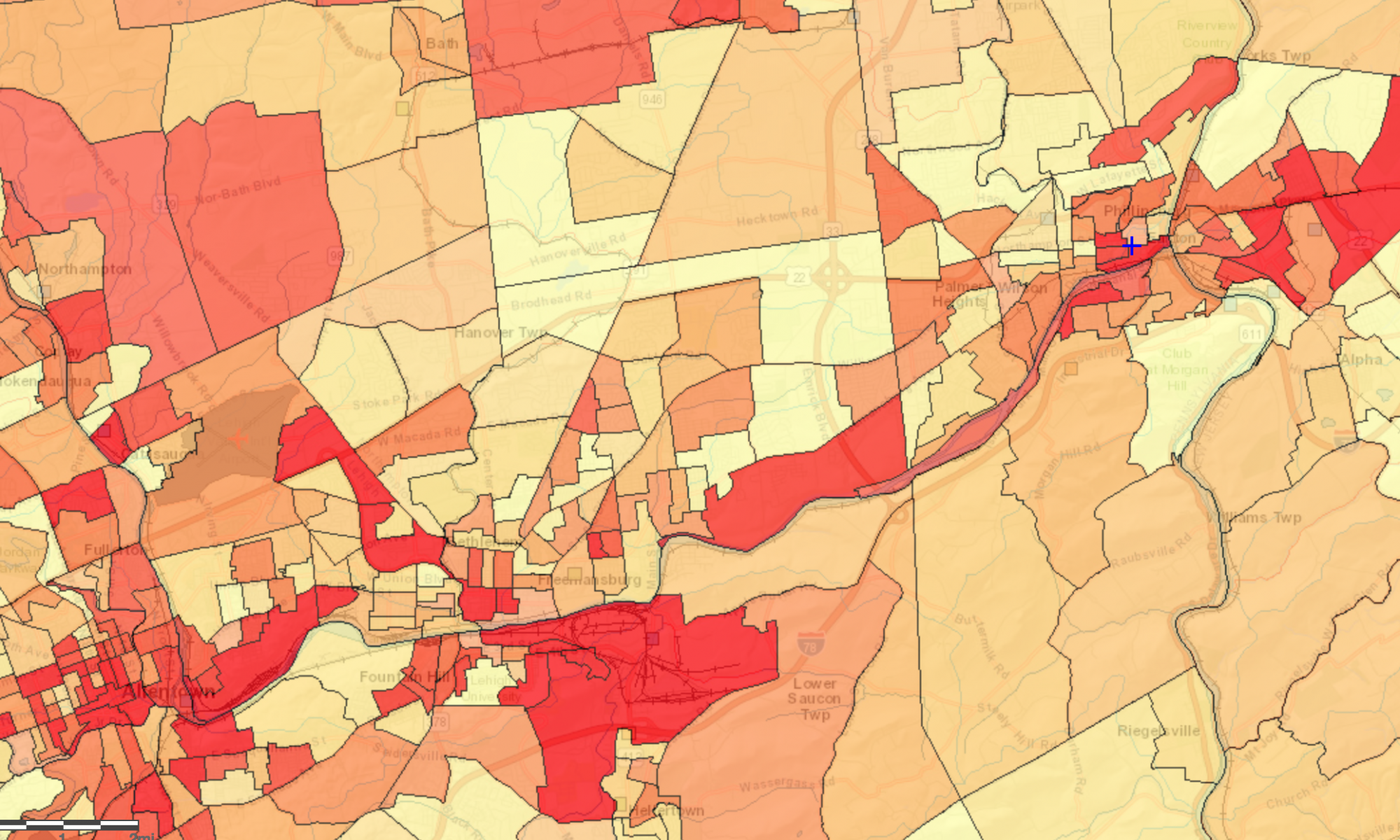Compost: broken down food waste, which can be used as an organic fertilizer.
What has been done so far:
Lafayette has historically composted students’ food waste in the buffet-style dining halls, and this compost is used on LaFarm as organic fertilizer. Converting food scraps to compost instead of throwing them away decreases the amount of food waste that ends up in landfills, while also helping to sustain the farm. Using compost adds essential nutrients to the soil, enriching its composition. This allows for better root growth, and increases moisture and nutrient retention in the soil.

Student volunteers rest after helping plant the spring harvest all afternoon.
Next Steps:
After relocating the compost bins recently to Metzgar fields, transportation and upkeep issues have yet to be sorted. Thus, no food waste is being turned to compost currently; it is being sent to landfills. This system needs to reworked so the school can begin composting again:
- Find a means of powering the compost bins
- Reestablish the transport of food waste to these bins, and create set days to deliver the waste
The vast majority of food waste on campus is still not composted. There ought to be compost bins in all cafes and dining halls, as well as dorms in which students can dispose of their food waste.
- Have compost bins just as readily available as trash
- Have the Eco Reps, student sustainability coordinators, ensure that all food waste makes it to the compost bins
